War games take on new urgency in face of global instability
The world’s armies have descended on Australia to train and prepare for warfare. See where missiles will be blasted and other weapons tested.
National
Don't miss out on the headlines from National. Followed categories will be added to My News.
German armed forces will for the first time in their history deploy 240 paratroopers and marines alongside French and British troops for jungle warfare operations in Queensland.
Further along Australia’s east coast at Shoalwater Bay the Indonesian military will conduct their first tactical “parachute insertion” as South Korean troops test fire their self-propelled howitzers.
Off the NSW coast the Japanese will live-fire new surface to surface missiles as a multinational force will make a land, air and sea incursion onto Norfolk Island while in Bowen, almost 1000 US troops will step off ships from a pop up 500 metre long pier.
And they are the smaller components of Talisman Sabre 2023, the Australian Defence Force led military exercise beginning this week involving more than 30,000 troops and dozens of ships, aircraft and armoured vehicles from more than a dozen nations.
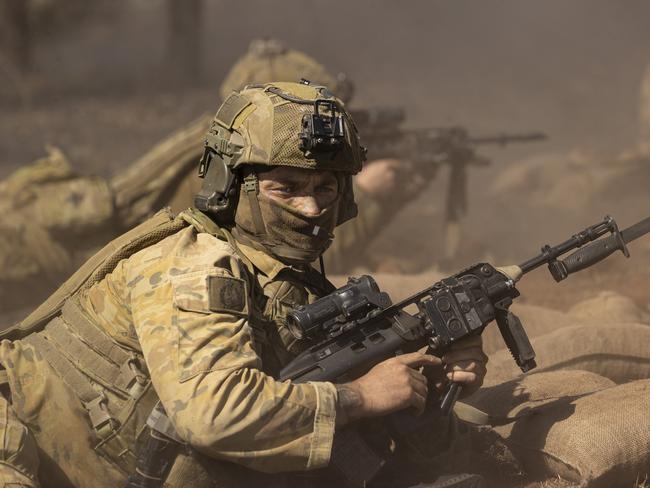
“There are 40 firsts, that’s 40 things we are doing this time for the first time … it is no easy undertaking to be able to work in a kaleidoscope of nations,” Talisman exercise director ADF Brigadier Damien Hill said yesterday.
For China it is exactly the sort of scenario that this week saw Beijing formally protest NATO’s perceived “eastward movement into the Asia-Pacific region” after NATO Secretary General Jens Stoltenberg warned China was increasingly challenging the rules-based international order in the region.
A few years ago the ADF’s premier military exercise was zealously restricted to a discrete bilateral drill between the ADF and US forces.
But such is the global strategic outlook – partly due to Russia’s invasion of Ukraine and China’s coercive posture – the Indo Pacific has emerged as a crucible for multinational forces.
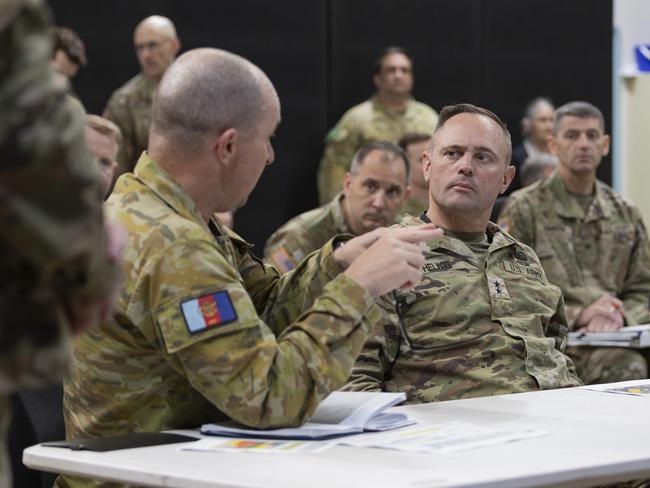
“It is a region of extremely high importance for us in Germany as well as for the European Union due to the economic interdependencies”, German Army chief Lt Gen Alfons Mais said, adding the world had moved on since the 1990s.
“The Cold War was easy, it was a bipolar world. Today, we can no longer focus on Europe only … we have to position ourselves much more broadly. We aim to demonstrate that we are reliable and capable partners that contribute to stabilising the rules-based order in the region.”
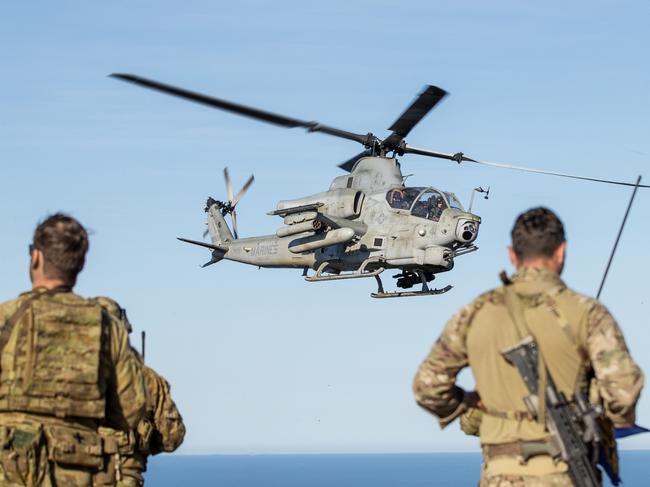
Brig Hill said the mass mobilisation of allied nations would drill against a fictitious enemy – the Olvanian – under a broad scenario of Joint Forcible Entry Operation or JFEO doctrine, of forcing access to a denied area to allow movement to complete the mission.
“A lot of the exercise design isn’t what I have decided needs to be done, it’s a collaboration of all the nations participating,” he said. “That’s the biggest thing that’s changed, we asked them what they wanted to do. They want to operate in a manner that is reflective of the countries they live in.”
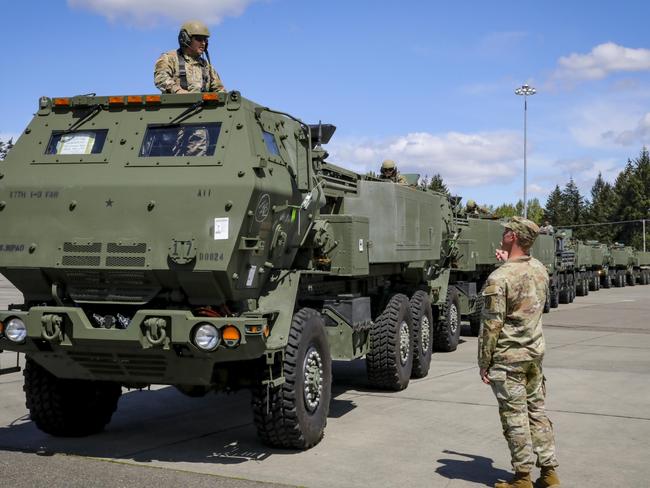
Brig Hill said while geography hadn’t changed, nations’ relationship with geography had.
“It is a much more interconnected world because there is trade plied so that we are now seeing countries as far as Europe intimately connected with South East Asia and Indo Pacific from a trade perspective than they were in the early days of the 20th century … that multipolar world means that strategically you can’t think you are safe and comfortable and economically prosperous, in Germany if you have economic commitment in the Pacific in the same way we have in Europe with the European Union. It’s a geography challenge and our relationship with geography is different to what it was 10-15 years ago.”
TS23 opens aboard HMAS Canberra on Sydney Harbour on July 21.
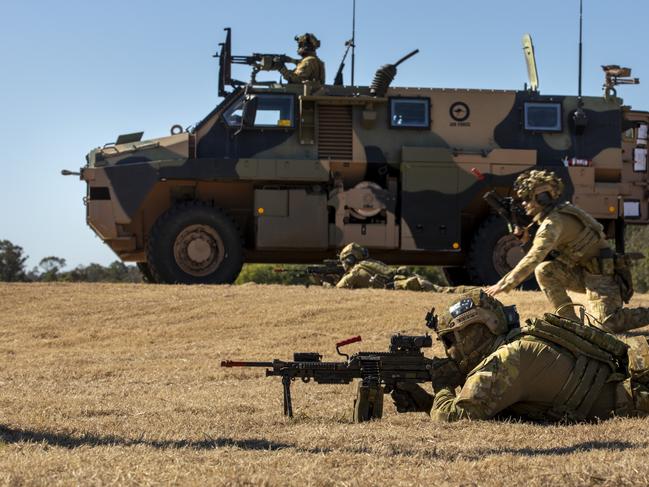
The biennial Talisman will test the ADF and allies respective forces planning and conducting combined (multinational) and joint (multi-service) Task Force operations to improve combat readiness and interoperability between Australian and partner nations.
In 2021 Talisman saw about 17,000 military personnel from seven nations including Australia take part. This year’s iteration is double.
In addition to Australia and the US, TS23 will also include participants from Canada, Fiji, France, Germany, Indonesia, Japan, Republic of Korea, New Zealand, Papua New Guinea, Tonga and the United Kingdom. India, the Philippines, Singapore and Thailand will attend as observer nations.
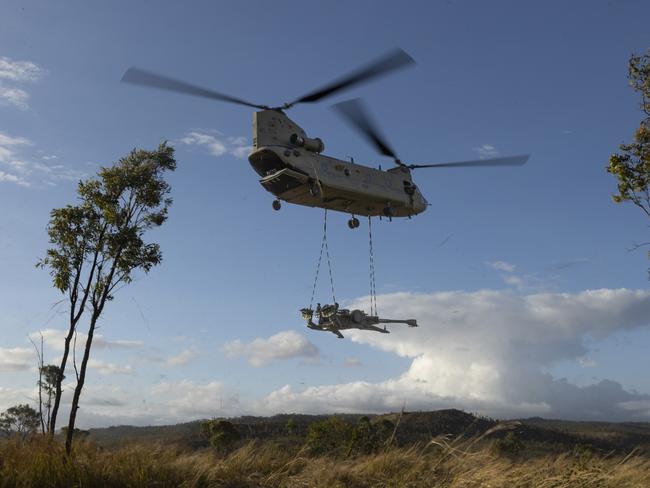
Such is the exercise size, the bare base RAAF Base Scherger had to be “reactivated” to full operations.
“Talisman is certainly the pinnacle of exercise we run in the ADF, it certainly is challenging but equally a rewarding exercise to be part of to see our men and women work with so many other nations is fantastic,” Brig Hill said.
“It’s really going to be a wonderful experience for everyone. It’s great to have our South West Pacific family participating, to work alongside other nations that they wouldn’t normally get to undertake activities with which they simply don’t have capabilities for … Tonga, Papua New Guinea and Fiji and of course New Zealand.”
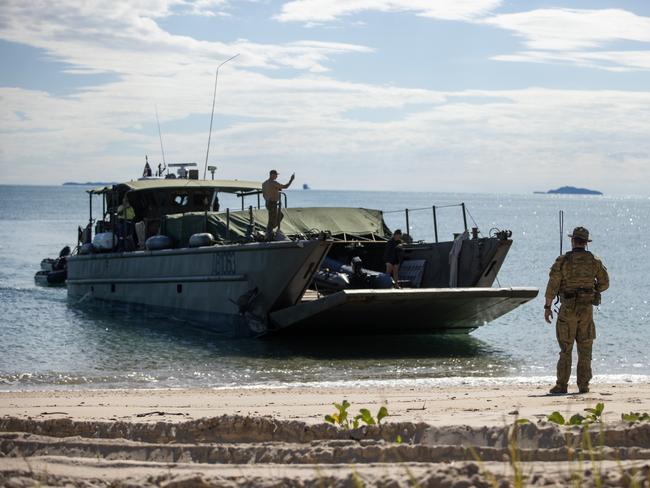
US Brig Gen Jered Helwig, the Army’s 8th Theater Sustainment Command commander, said the operation was huge, not just the deployment but the strict quarantine measures Australia had in place.
The US was ordered to ensure their Leopard Snail did not get here, meaning months cleaning equipment in Hawaii ahead of deployment.
“The scale is an order of magnitude higher than anything that has ever been done before,” he said.
Originally published as War games take on new urgency in face of global instability




